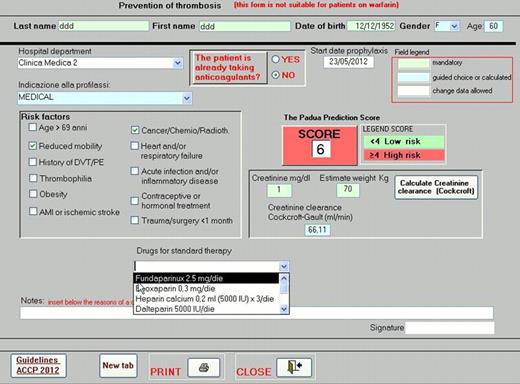Abstract
Abstract 4371
Using of a software for venous thromboprophylaxis prescription in hospitalized patients. Evaluation of the prescriptive mode in relation to the risk profile of the patient.
Has been developed a software, which guides the physician to the choice of prophylaxis of VTE on the basis of a thromboembolic risk score (The Padua Prediction Score), renal function and the type of admission. We analyzed data derived from prescriptions over a period of 14 consecutive months.
3125 patients were included. 68% of the patients were “high-risk (HR)” and 32% at “low risk (LR)”. Were treated with drug therapy, 89% of HR patients and 40% of LR. 11% of HR patients were not treated for severe renal failure or high risk of bleeding.
All HR patients were considered for thromboprophilaxis. 89 % of HR patients and 40% of LR were treated. In our initial experience the software is an effective tool to identify patients at high risk and more effective prophylactic strategy. Furthermore, the evaluation of creatinine clearance allows to assess the bleeding risk associated with prophylactic treatment.
No relevant conflicts of interest to declare.
Author notes
Asterisk with author names denotes non-ASH members.


This feature is available to Subscribers Only
Sign In or Create an Account Close Modal